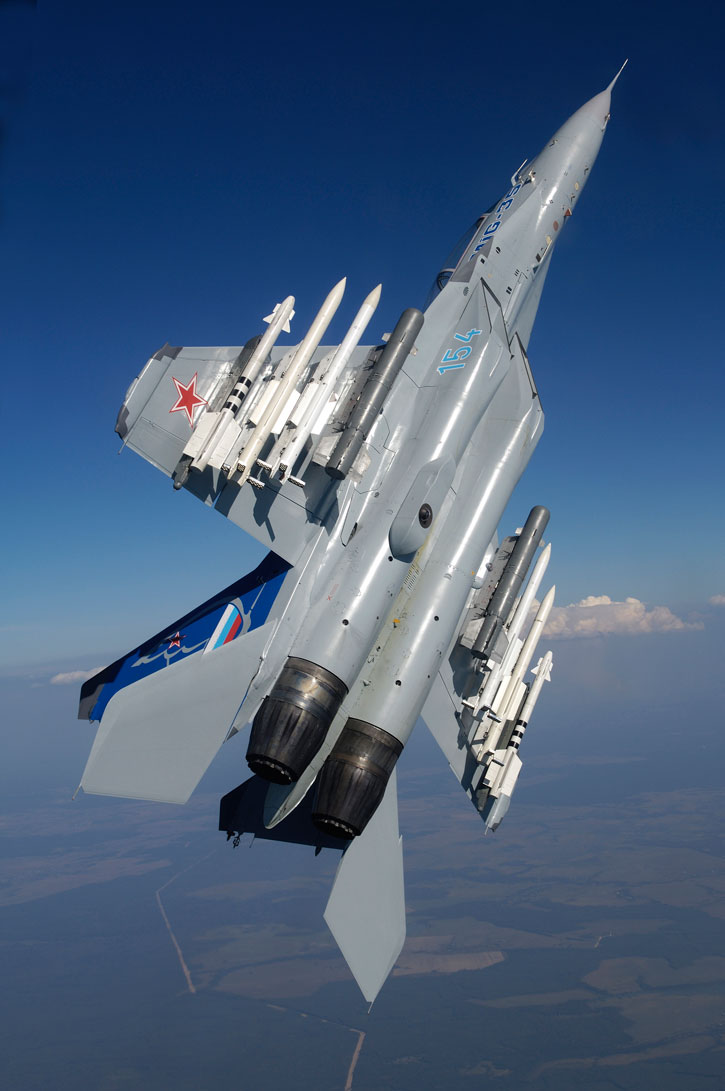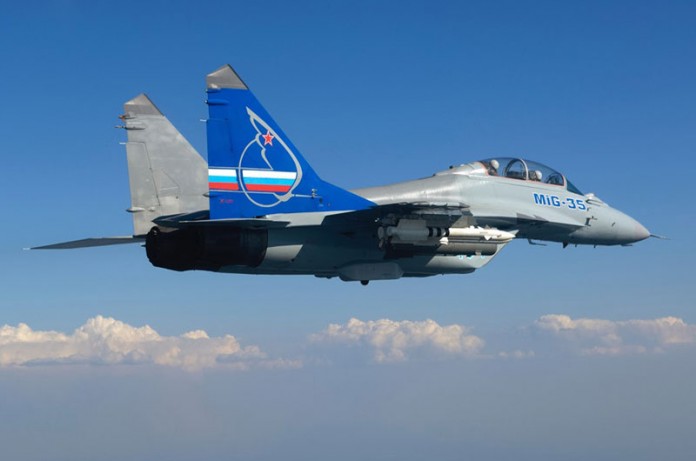
Russia has acknowledged an Egyptian request to procure a squadron of MiG-35 advanced fighter aircraft, to include up to 24 fighter jets at a cost of US$3 billion. The fulfilment of this package could be delayed though, as this specific type of aircraft hasn’t reached a production stage. The manufacturer, Russian Aircraft Corporation (UAC) through its subsidiary Russian Aircraft Corp (RAC) has failed to gain international orders for the aircraft and is currently awaiting an initial order from the Russian Air Force to kickstart production by 2016. However, Moscow could try to secure an Egyptian order with an earlier model that could utilize the current production line, namely the new-built MiG-29M/M2, which share commonality with the MiG-29K model recently supplied to Indian Navy.
By approaching Moscow, Egypt is regaining international support, after getting a cold shoulder from Washington, following the military coup d’état that toppled the controversial, yet democratically Mohamed Morsi, and his moslem Brotherhood party. .
The $3 billion arms package could include up to 24 MiG-29/35 fighter jets, Mi-35 helicopter gunships, air and coastal defense systems, firearms and ammunition
The arms package has been negotiated since November 2013 but no contract has been signed yet. The framework of that deal was originally proposed during a visit by Russian Foreign Minister Sergei Lavrov and Defense Minister Sergei Shoigu to Cairo in November 2013. In February the arms package was agreed in principle between Field Marshal Abdel Fattah al-Sisi, then defense minister and the Russian president Vladimir Putin during Sisi’s visit to Moscow in February 2014. It was Sisi’s first trip abroad, following his seizure of power in a coup in August 2013.
Moreover, financial sources for the deal are unclear, particularly with the Saudi reluctance about Cairo’s moving closer with Moscow. As Egypt’s economy is in standstill for several years, with empty national treasury empty, and US financial support diminishing, how can Egypt afford such spending? The deal is reportedly to be funded mainly by Saudi Arabia and the United Arab Emirates (UAE) but following deteriorating relations between Riyadh and Moscow, particularly over the Russian support to the Syrian regime, wholehearted fulfilment of such obligation is questionable.
The commercial side of the deal is casting more optimism; UAC CEO Sergei Korotkov confirmed that negotiations are ongoing but said the number of aircraft Egypt will eventually get has been changing constantly. According to Russian industry sources the arms package would include the MiG fighter jets, Mi-35 helicopters, air defense missile systems, coastal defense (shore-based anti-ship) missiles, as well as firearms and ammunition.










